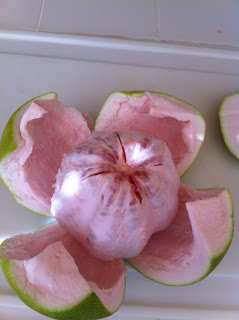Oh, goody! Another book to shuffle up to the top of my TBR pile. Sherman Alexie's award-winning novel, The Absolutely True Diary of a Part-Time Indian, has just been banned by a school district in Georgia.
Here is a quote from an article about the incident that really gets to the heart of why banning books is not only misguided, but also potentially harmful.
"The idea that what is inside a book -- offensive language, sexual references, thematic material, violence, witchcraft, etc. -- should determine its availability to students is a direct challenge to freedom of choice and educational mission.
Discussion of sensitive or weighty topics in a school setting can promote intellectual growth and maturity. Banning a book, conversely, can deprive students of the opportunity to broaden their understanding of the world." Read the full article here
Parents certainly have the right to limit their own children's access to materials that they find offensive or otherwise inappropriate. But making that decision for EVERYONE'S children is simply wrong. Rather than banning books, perhaps it would be smarter to read along with our children and then TALK ABOUT the ideas. What a great opportunity to clarify the moral values that we want to pass along to our children! It's called a teachable moment, folks. Use it.
Review to follow. Feel free to add yours, too.
The War On Tomatoes
-
*The war on drugs is a joke. We spend $40 billion a year, and the proof
that it's a failure is that any kid can get almost any drug they want in
any c...
1 year ago

















